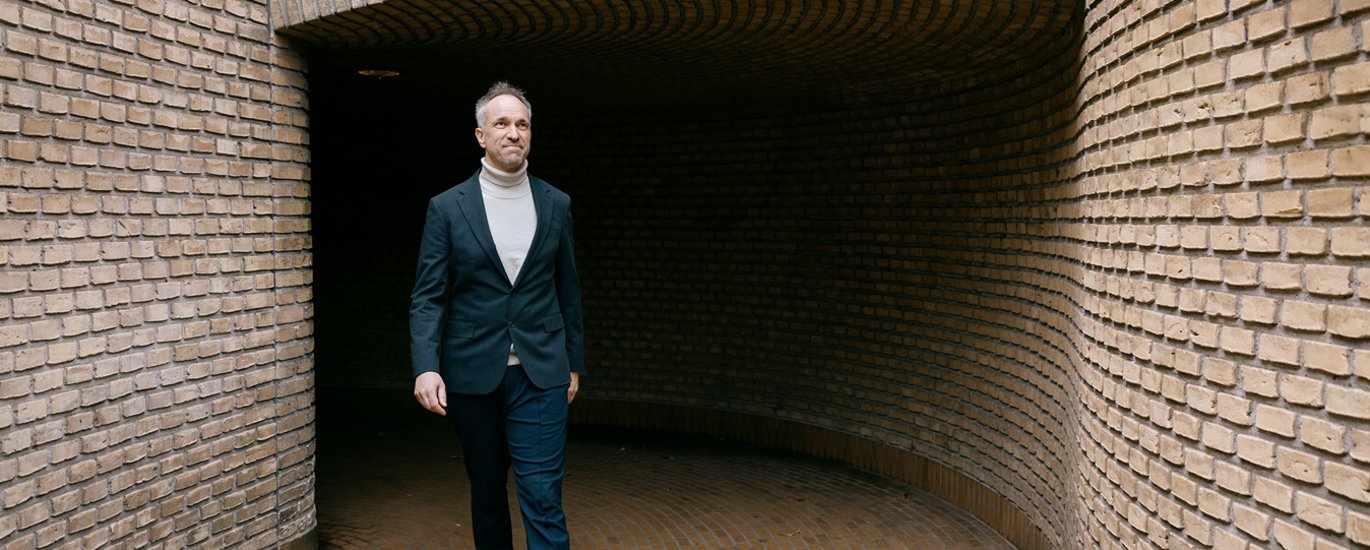New vice-dean will promote interdisciplinary research
There must be room for both interdisciplinary research and monodisciplinary excellence, stresses the new vice-dean for research and talent development at Aarhus BSS, Professor René Chester Goduscheit.

Professor René Goduscheit’s commitment to translating research into real-world practice is not purely theoretical: it comes naturally to him, and has defined the trajectory of his own research career.
So when he starts his new job as new vice-dean for research and talent development on 1 May, he will bring this commitment to bear by working to promote more interdisciplinary and practice-oriented research in business administration and social sciences.
With one major caveat, he stresses: this development must not take place at the expense of monodisciplinary excellence. It must take place in harmony, which can be a challenging balance to strike, he acknowledges:
“On the one hand, we have a funding landscape that is increasingly oriented towards more interdisciplinary research and that’s an important driver. The same goes for the many major societal challenges we are facing. On the other hand, we have an academic structure in which it’s important to publish in recognised scientific journals, which are often centred on monodisciplinary expertise. This is a schism we have to learn to navigate.”
It takes place between people, and it’s not necessarily easy to bring bright minds together; some prefer to burrow deep into a question on their own, while others are more into shared solutions and processes. But it can be done, and I’ve spent many years practising.
Vice dean René Chester Goduscheit, Aarhus BSS, Aarhus Universitet
Complex problems
For individual researchers, publishing research findings in the right journal is important because it can be the next step on their career path, the new vice-dean acknowledges, and that’s why it’s important to continue to reward monodisciplinary excellence. But at the same time, society is facing major challenges – and to solve them, researchers from multiple disciplines will have to work together.
“Whether we’re talking about sustainability, the green transition or other challenges, we’re dealing with very large and very complex problems that can’t be solved with purely technical or purely economic tools. To find solutions, we need to put a variety of angles - among them technical, economic, political, sociological - into play, and in this regard it’s kind of amazing how much muscle we as a university and faculty have to contribute in terms of knowledge,” Goduscheit says.
Finding the right balance between interdisciplinary and monodisciplinary research is first and foremost a question of being aware of the tension between them and working to influence structures that can build bridges and establish collaborations. He says:
“It takes place between people, and it’s not necessarily easy to bring bright minds together; some prefer to burrow deep into a question on their own, while others are more into shared solutions and processes. But it can be done, and I’ve spent many years practising.”
Practice-oriented collaboration
Goduscheit graduated from Aarhus University with a Master’s degree in political science in 2004. After a brief stint in the private sector as a consultant, he took an industrial PhD at Aalborg University. He then worked at the University of Southern Denmark until 2018, when he became a professor at the Department of Business Development and Technology at Aarhus BSS in Herning.
Throughout his tenure at Aarhus BSS, he has also served as head of the research unit AIROD. The unit’s vision is “to become a leading European research unit within technology-driven organisational and business development through practice-oriented, collaborative research”.
Until recently, Goduscheit also served as vice-chair of the industrial researcher committee under Innovation Fund Denmark, which considers applications to the foundation’s industrial researcher programme.
“Both positions gave me a lot of training in thinking about research as an interplay between the university, industry and the public sector,” he said. Goduscheit is looking forward to putting this experience to work at faculty level.
Head of the graduate school
He is also looking forward to taking the reins at Aarhus BSS’ graduate school, which will be one of his responsibilities as vice-dean for research.
“I’m looking forward to working to develop talents who can make a difference in research and in society. And we have to focus on making the graduate school a good experience and a good place to be by making sure our PhD students thrive and enjoy their work,” Goduscheit says.
Dean Thomas Pallesen welcomes the new vice-dean to the Dean’s Office.
He says: “I’m looking forward to welcoming René as the newest member of the Dean’s Office and the faculty leadership team. René has served on the faculty's committee for research, equality and diversity for a number of years, and as head of section, he has served as part of the leadership team at the Department of Business Development and Technology. He will thus bring solid knowledge of the faculty's strategic direction and priorities to his new position. He also has a lot of expertise in interdisciplinary research, which I am sure we will benefit greatly from at the faculty.”